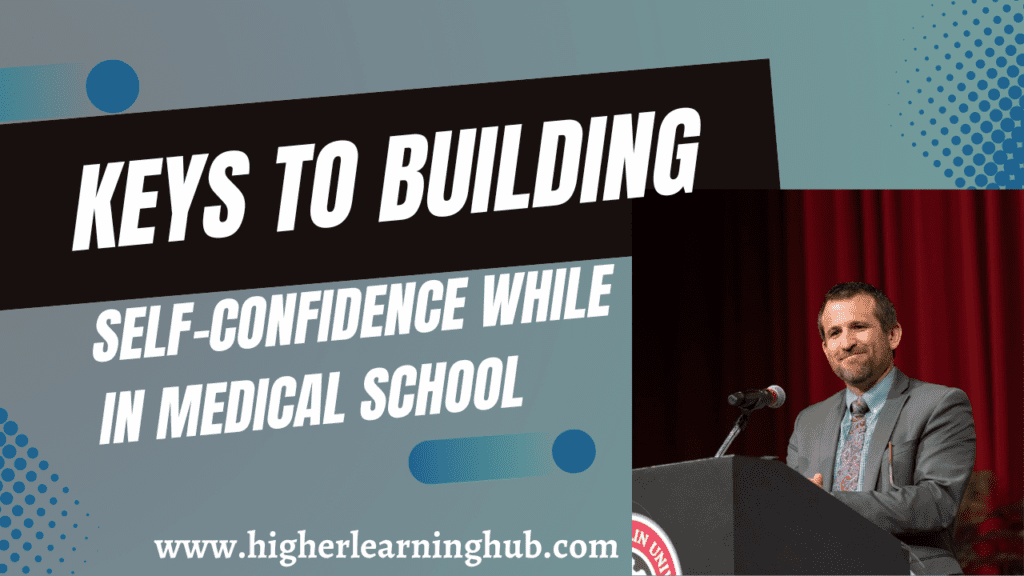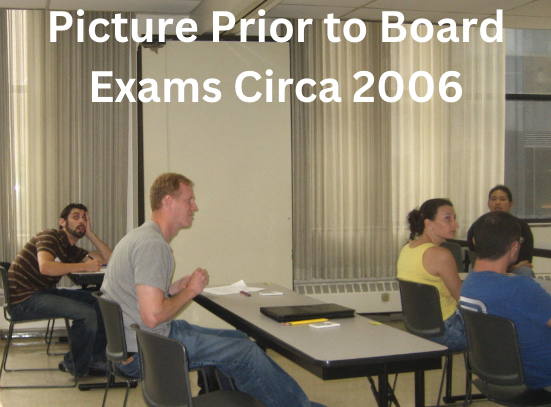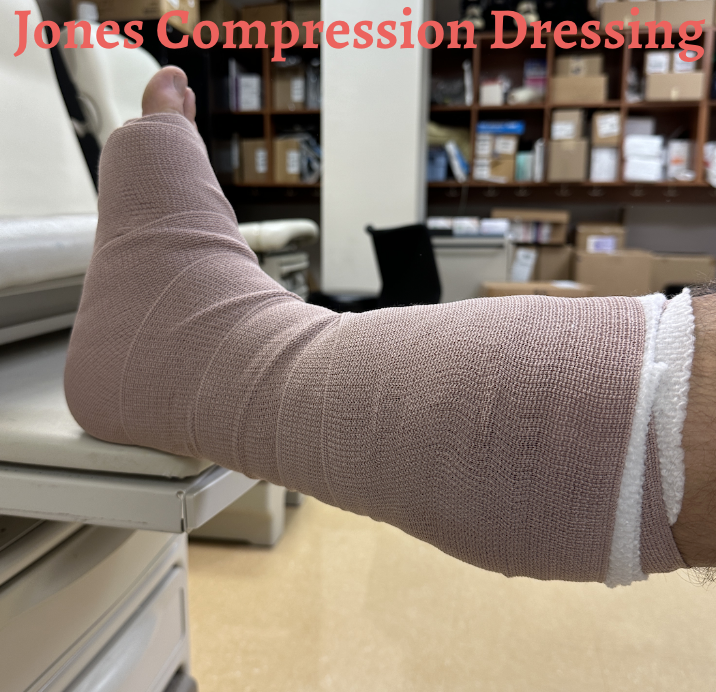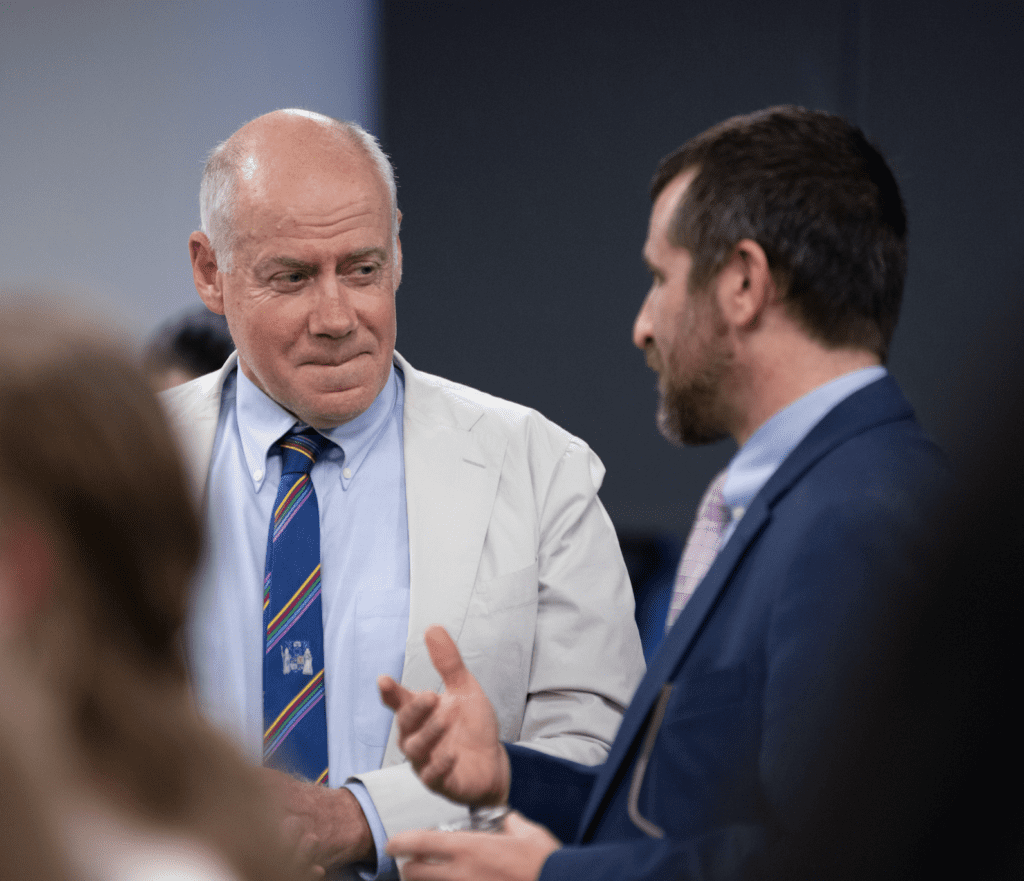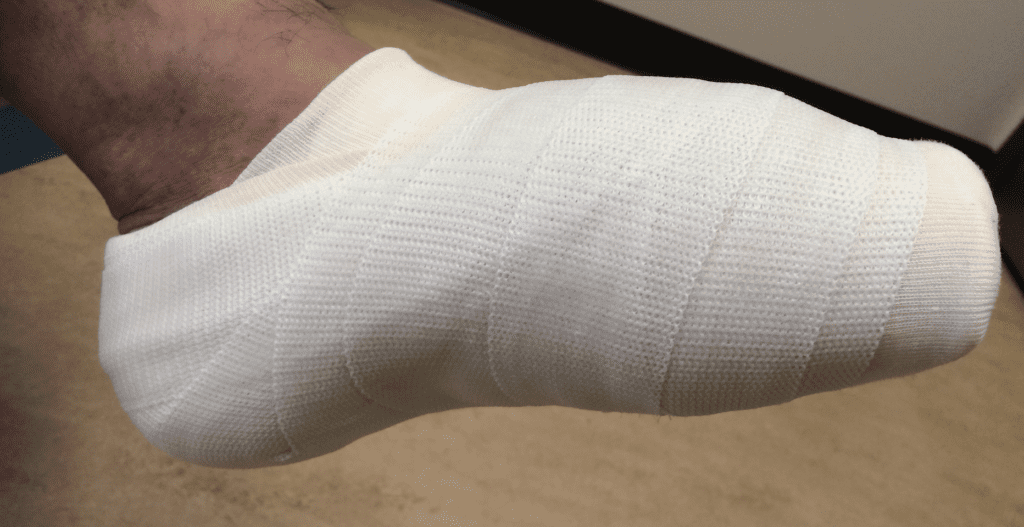Authored by Dr. Leland Jaffe; Associate Dean and Professor; Published on July 14th, 2024
Graduate-level education is one of the most challenging and rewarding experiences one can undertake. When I started, I quickly realized that confidence is a critical factor in navigating this demanding academic journey successfully. Here’s how I built my self-confidence while in podiatric medical school.
Embrace the Learning Curve


In the beginning, everything felt overwhelming. The sheer volume of information, the fast-paced environment, and the high expectations were intimidating. I entered graduate school directly from undergraduate school during which time I didn’t always need to work to my full capacity. Of course, some courses were challenging in undergrad, but the workload increased exponentially in my medical education. I learned to embrace the learning curve by reminding myself that feeling lost is part of the process. Each small victory, whether it was mastering a complex concept or successfully performing a procedure in clinic or workshop, built my confidence incrementally. I celebrated these achievements and used them as fuel to keep pushing forward.
Strategies that helped me climb the learning curve in medical school:
Medical school presents a steep learning curve, but with the right strategies and mindset, you can navigate it successfully. Here are some practical tips to help you climb the learning curve in medical school.
1. Develop Effective Study Habits
- Create a Study Schedule: Plan your study sessions in advance and stick to a consistent schedule. Break down your study material into manageable chunks and allocate specific times for each subject. Also make sure to use your time efficiently while studying, and to avoid being distracted.
- Active Learning: Engage with the material actively by summarizing information in your own words, teaching concepts to peers, and using flashcards for repetitive learning.
- Practice Questions: Regularly practice with questions to test your understanding and identify areas that need more focus. Use resources like question banks and past exams to simulate test conditions.
2. Utilize Resources
- Textbooks and Online Resources: Supplement your lectures with textbooks, online courses, and videos. Different resources can provide varied perspectives and explanations, aiding your understanding of the material. Oftentimes the course coordinator will publish in the syllabus supplementary materials that can help you succeed.
- Study Groups: Join or form study groups to collaborate with peers. Explaining concepts to others and discussing difficult topics can enhance your comprehension.
3. Seek Help When Needed
- Tutoring and Mentoring: Don’t hesitate to seek help from tutors, mentors, or professors. They can provide personalized guidance and clarify complex concepts. Remember that asking for help is a sign of STRENGTH and not a WEAKNESS.
- Office Hours: Take advantage of professors’ office hours to ask questions and get additional explanations on topics you find challenging.
4. Stay Organized
- Notes and Summaries: Keep your notes organized and concise. Summarize key points after each lecture and review them regularly.
- Calendars and Planners: Use calendars and planners to track assignments, exams, and study sessions. Staying organized helps reduce stress and ensures you stay on top of your workload. I rely heavily on my Google calendar as well as the ‘Stickies’ feature on my MacBook to make “to-do” lists for myself.
5. Embrace Technology
- Apps and Tools: Use apps and tools designed for medical students, such as digital flashcards, anatomy apps, and note-taking software.
- Online Forums: Participate in online forums and communities where you can ask questions, share resources, and connect with other medical students.
6. Regular Review and Reflection
- Weekly Reviews: Set aside time each week to review what you’ve learned. Revisiting material regularly helps reinforce your memory.
- Self-Assessment: Periodically assess your progress and adjust your study methods if needed. Be honest about your strengths and areas for improvement.
7. Stay Motivated
- Set Goals: Set short-term and long-term goals to keep yourself motivated. Celebrate small victories along the way.
- Remember Your Why: Remind yourself why you chose to pursue medicine or another advanced degree. Keeping your end goal in mind can help you stay focused and increase your chances of success.
8. Engage in Clinical Experiences
- Hands-On Practice: Take advantage of clinical rotations, labs, workshops, and simulation exercises. Practical experience reinforces didactic knowledge and helps you build the necessary skills to enter your clinical training with confidence. I would recommend volunteering for extra clinic time when given the opportunity, as the more reps you put in, the easier it will become.
- Observe and Ask Questions: During clinical rotations, observe experienced physicians, ask questions, and actively participate in patient care.
9. Adapt and Be Flexible
- Adjust Study Techniques: Be willing to adapt your study techniques based on what works best for you. Not all strategies work for everyone, so find what suits your learning style.
- Be Patient: Understand that mastering complex medical concepts takes time. Be patient with yourself and keep a positive attitude.
10. Seek Feedback and Learn from It
One of the most valuable lessons I learned was to seek feedback actively and use it constructively. Remember that both positive feedback and critique can provide a good learning opportunity. Initially, receiving criticism was tough (especially for the first time), but I soon understood that it was essential for growth. As a faculty member now of a med school, I wholeheartedly know that when faculty provide constructive feedback/criticism, it’s because they care and want to see you succeed. I started asking professors and peers for feedback on my performance and took their advice seriously- which helped to build my clinical confidence. This not only helped me improve my skills but also showed me areas where I was already doing well, boosting my confidence.
Try To Avoid Imposter Syndrome


Imposter syndrome is a common experience among medical students, where despite their hard-earned achievements and capabilities, they feel like frauds and fear being exposed as unworthy. This psychological phenomenon can lead to chronic self-doubt and anxiety, often exacerbated by the high-pressure environment and competitive nature of medical school. Students might attribute their successes to luck rather than skill, and any mistake or setback can reinforce feelings of inadequacy. Overcoming imposter syndrome involves acknowledging these feelings, seeking support from peers and mentors, and gradually building confidence through self-compassion and recognition of one’s achievements. By addressing imposter syndrome, medical students can foster a healthier mindset, build their confidence level, and perform more effectively in their academic and clinical responsibilities.
Join Study Groups Or Small Group Study Sessions
Being part of a study group was a game-changer. It provided a support network where I could share my struggles and successes. Explaining concepts to others reinforced my understanding and built upon my knowledge base – seeing my peers face similar challenges made me realize that I was not alone. The camaraderie and mutual support helped build my confidence significantly knowing that we had similar situations. I noticed positive changes in my coursework through working with my study group. Remember that your strengths are likely others’ weaknesses, and vice versa. This type of study strategy can help you have a better understanding of course material and build communication skills. Further, you can challenge each other with common questions presented in class or clinic, review common interview questions as you prep for residency interviews, and practice for clinical examinations. All of these activities are difficult to complete independently, and working in a team I feel is in your best interest to ensure success.
The Benefits of a Study Group
Working in a study group in medical school offers numerous benefits that can significantly enhance your learning experience. Study groups foster collaborative learning, where members can share diverse perspectives and insights, helping each other understand complex concepts more thoroughly. Explaining material to peers reinforces your own knowledge and aids in retention. Additionally, study groups provide a support system, reducing feelings of isolation and stress by promoting a sense of community. They also help in developing critical thinking and problem-solving skills through discussions and debates. Moreover, group members can hold each other accountable, ensuring that everyone stays on track with their studies. Overall, study groups create a dynamic and interactive learning environment that can improve academic performance and personal growth.
Get Involved in Extracurricular Activities
Participating in extracurricular activities (especially in my first year and second year), such as joining student organizations or volunteering, played a significant role in boosting my confidence. These activities allowed me to take on leadership roles, work on community service projects, and interact with a diverse group of people in the medical field. The skills I gained outside the classroom, from public speaking to time management to conflict resolution, translated into greater confidence in my academic and clinical pursuits.
Practice Self-Care – Critical To Build Confidence While In Medical School
Medical school can be all-consuming, but I learned that taking care of my mental and physical health was crucial. Regular exercise, adequate sleep, and hobbies outside of school made a significant difference in helping me maintain a balanced life. When I felt good physically and mentally, I was more confident and better prepared to face the challenges of school. Whether it’s just 10 minutes or 2 hours, taking just a little bit of time each time to find enjoyment can be a powerful tool in maintaining your mental health. Now that I’m 15+ years into medical practice, I realize that starting these habits in my early years has made a significant impact on my overall health and well-being.
Find Mentors and Role Models
Having mentors and role models who believed in me was incredibly empowering. They provided guidance, shared their experiences, and offered encouragement. Knowing that accomplished professionals had once been in my shoes and had successfully navigated the same challenges gave me confidence that I could do the same.
Finding a mentor in medical school is a crucial step for personal and professional growth. Begin by identifying your interests and career goals, then seek out faculty members, residents, or practicing physicians who align with those areas. Attend departmental meetings, seminars, and networking events to connect with potential mentors. Utilize your medical school’s resources, such as student affairs offices or mentoring programs, which often facilitate mentor-mentee matches. Approach potential mentors with a clear idea of what you hope to gain from the relationship and be prepared to discuss your aspirations. Building a genuine connection through regular, respectful communication is key. Remember, a mentor should not only provide guidance and knowledge but also support your development and inspire you to achieve your full potential.
How To Maintain Confidence As You Enter Your Clinical Training
Entering residency can be both exciting and daunting, but maintaining high confidence levels in the clinical setting is important. Confidence stems from preparation, self-awareness, and a positive mindset; as well as putting in the reps. As you transition from medical school to residency, remind yourself of the knowledge and skills you’ve accumulated. Embrace the learning process, recognizing that it’s normal to have gaps in your understanding initially. Your clinical skills will continue to develop as you gain more experience. Seek feedback from peers and mentors, and use it constructively to improve. Additionally, self-care is vital—ensure you get adequate rest, maintain a healthy work-life balance, and engage in activities that bring you joy. Surround yourself with supportive colleagues, and don’t hesitate to ask for help when needed. By staying prepared, seeking support, and taking care of your well-being, you can keep your confidence high and navigate residency training effectively.
I often equate building clinical confidence to quarterbacking a football team. As you gain more reps and years of experience on the football field, the game slows down, and you become more efficient on the sports field. I think the same phenomenon happens during your clinical training as well. As you gain more clinical experience throughout your years of medical school and residency, you’ll start to recognize patterns and take mental shortcuts, and you’ll notice a significant improvement in your confidence.
Reflect on Your Progress
Periodically reflecting on my journey helped me see how far I had come. It’s easy to focus on what still needs improvement, but acknowledging progress is just as important. It’s a good idea (especially in your third year and fourth year of medical school) to acknowledge how far you’ve come in your medical training and give yourself credit for the effort and time you’ve committed.
Building Self-Confidence While In Medical School – Conclusion
Building confidence in medical school is not an overnight process; it’s a continuous journey that requires a lot of work. By embracing the learning curve, seeking feedback, joining study groups, getting involved in extracurricular activities, practicing self-care, finding mentors, and reflecting on progress, I gradually built the confidence needed to find success. Every challenge I faced and overcame made me more resilient and assured in my abilities, preparing me for a successful career in medicine.

